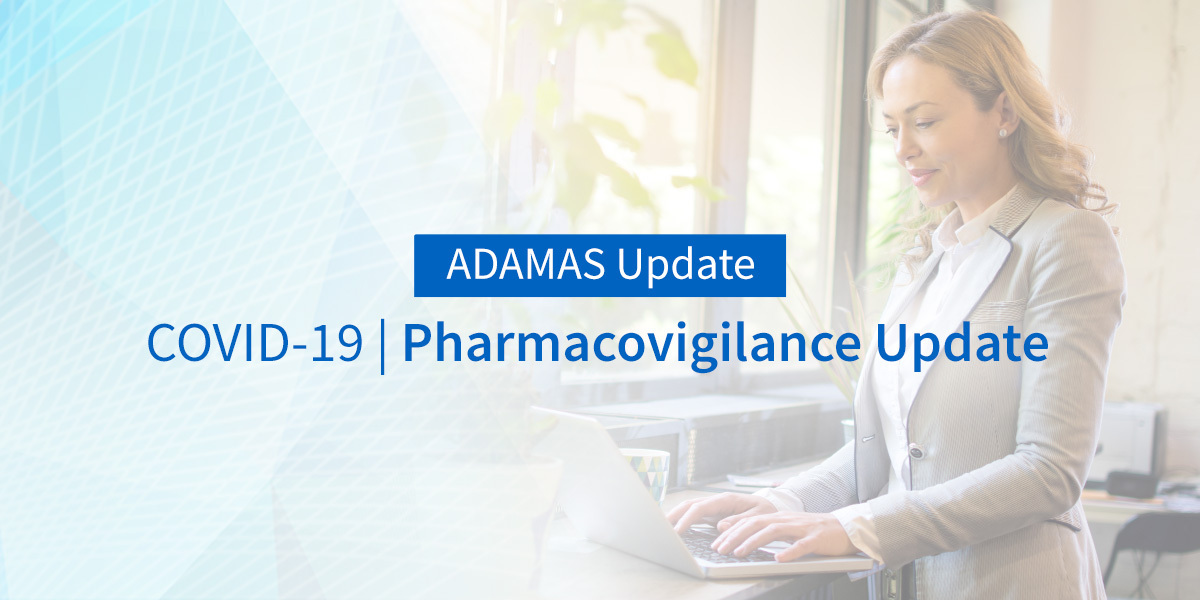In response to the COVID-19 pandemic, the Food and Drug Administration (FDA), European Medicine Agency (EMA) and other national health authorities have published guidelines and recommendations regarding post-authorisation Adverse Event (AE) reporting during this pandemic. This article provides a summary on global health authority expectations related to pharmacovigilance during the COVID-19 pandemic.
EMA Q&A : Regulatory Expectations During the COVID-19 Pandemic (April 2020)
One of the EMA expectations is for companies to activate Business Continuity Plans (BCPs) and prioritise reporting obligations if they are unable to continue their standard reporting processes until the pandemic is resolved.
According to the EMA guidance, it is essential that MAHs report all serious Individual Case Safety Reports (ICSRs) within 15 days as set out in Directive 2001/83/EC. In addition to this, the Marketing Authorization Holder (MAH) should also prioritise submission of serious and non-serious ICSRs associated with medicinal products used for the treatment or prevention of the pathogen causing the pandemic.
Where MAHs implement a prioritisation approach to their reporting obligations, they should record this in the Pharmacovigilance System Master File (PSMF).
FDA Guidance : AE Reporting During a Pandemic (March 2020)
The FDA anticipate that during a pandemic, industry and FDA workforces may be reduced because of high employee absenteeism and AE reporting for pandemic related medicines may increase. As per the FDA guidance, companies should develop a “Continuity of Operations Plan (COOP)” if they are not in a position to fulfil all AE reporting requirements because of pandemic-related employee absenteeism.
Within the COOP, companies should consider the total number of global sites affected by the pandemic and relative amounts of resources dedicated to mandatory AE reporting at each site. Companies are required to document the high absenteeism and/or other factors that are preventing them from meeting regulatory AE reporting requirements.
The FDA encourages companies to process all AE data as per existing Standard Operating Procedures (SOPs) and regulatory and statutory requirements for AE reporting. Delayed reports are required to be submitted to the FDA within six months of the restoration of AE reporting processes to their pre-pandemic state.
The FDA guidance document indicates different types of reports for which companies may delay submission if normal processes are not feasible due to high employee absenteeism during the pandemic. However, reports with a regulatory timeframe of 30 days or less (e.g. 15-day reports, 30-day reports) should be submitted before periodic safety reports. Therefore, 15-day and 30-day reports have priority over periodic safety reports. For medical devices, the reporting priority is specified by outcome, i.e. fatal vs non-fatal.
In addition, companies are expected to submit reports as per normal reporting requirements for all new emerging safety issues.
FDA Policy : REMS Requirements During the COVID-19 Public Health Emergency (March 2020)
The FDA acknowledge that during the pandemic completion of Risk Evaluation and Mitigation Strategy (REMS) requiring laboratory testing or imaging studies may be difficult as patients may need to avoid public places. In addition, patients suspected of having COVID-19 may be self-isolating and/or subject to quarantine.
Under these circumstances, health care providers prescribing and/or dispensing REMS medications should consider whether there are compelling reasons not to complete these tests or studies during the pandemic, and use their medical judgment in assessing the benefits and risks of continuing treatment in the absence of laboratory testing and imaging studies. Health care providers should also communicate with their patients regarding these judgments, including any associated risks.
Manufacturers should document and summarize in their next REMS Assessment Report steps that were taken to accommodate patient access to these REMS medications during the pandemic.
MHRA : Regulatory Flexibilities Resulting From Coronavirus (COVID-19) (April 2020)
The Medicines and Healthcare products Regulatory Agency (MHRA) has published guidance on flexible approaches to pharmacovigilance requirements during the pandemic. The MHRA expects companies to conduct the follow-up processes as outlined in EMA GVP Module VI in a risk-proportionate manner to minimise the burden on Health Care Professionals (HCPs).
For Risk Minimization Measure (RMM) activities, the MHRA is providing flexibility on timelines for surveys on the effectiveness of educational materials involving HCPs. For products authorised in the UK only which do not follow the European Union Reference Date (EURD) list, Periodic Safety Update Report (PSUR) submission can be postponed or waived.
The MHRA is allowing flexibility regarding submission of national variations/implementation dates of up to a three-month extension. The MHRA is also accepting extension requests for Request For Information (RFI) responses, flexibility to label and leaflet changes and allowing dissemination of Direct Healthcare Professional Communications (DHPCs) and educational materials via email rather than sending hard copies.
Health Canada : Reporting Requirements During the COVID-19 Pandemic (April 2020)
Due to the disruption caused by the pandemic on business operations, Health Canada accept that the submission of Adverse Reaction (AR) and Medical Device Problem (MDP) reports to Health Canada may not occur within the regulatory timeframes. Delayed cases should be submitted as soon as feasible. Companies should maintain records to identify what has been delayed.
Reporting expectations and timelines should be maintained for certain high priority products including antivirals, vaccines, medicines for outbreak symptom management, medical devices for the diagnosis and management of patients with COVID-19, blood and blood components, cells, tissues and organs (CTOs) and drug identification number-assigned (DIN) manufactured blood products. Furthermore, all reports of ARs and MDPs with fatal outcome should also be treated as priority regardless of the suspect product.
In order to provide reporters with some flexibility surrounding the submission of AR and MDP reports, MAHs who are not currently enrolled as trading partners with Health Canada may submit reports using the online reporting application available on the Health Canada website.
MSSO : COVID-19 Update of MedDRA 23.0 Release (April 2020)
MedDRA Maintenance and Support Services Organization (MSSO) have published the updated English and Japanese versions of MedDRA 23.0, which includes new COVID-19 related terms and revisions. MedDRA users are advised to implement this new version by 03-May-2020.
The MSSO has also created the above webpage with all the information relevant to this COVID-19 update, including a recording and the presentation materials from their webinar “MedDRA and COVID-19” held on 17-Apr-2020.
To find out more about what ADAMAS can do to support your compliance activities during these challenging times, please feel free to call us on +44 (0)1344 751 210 in Europe, +1-919-341-3361 in the US; or email us at info@adamasconsulting.com.
In addition, please check out our dedicated COVID-19 series webpage to learn about our remote service offerings.


